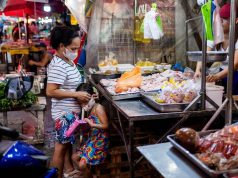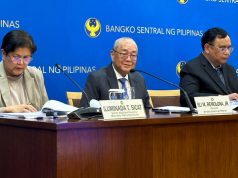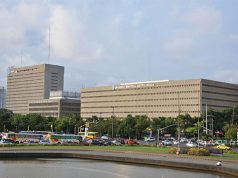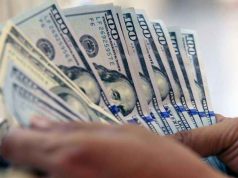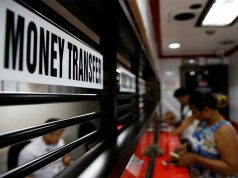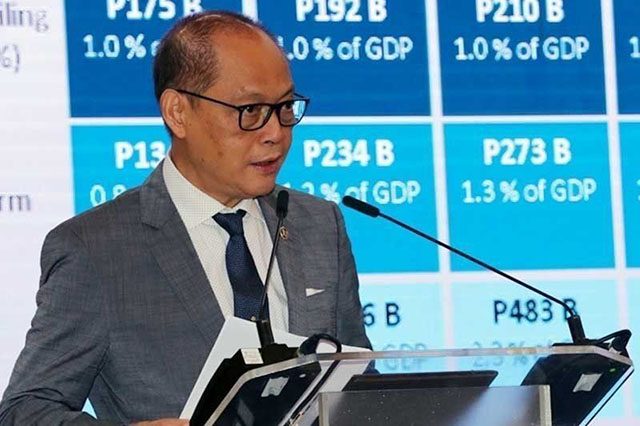
MANILA — Incoming central bank governor Benjamin Diokno said on Wednesday that inflation could fall to 2 percent — the bottom of its target range — as early as the third quarter, due to base effects.
The annual inflation rate moved back inside the bank’s 2-4 percent target in February when it eased to a one-year low of 3.8 percent, but year-to-date inflation of 4.1 percent is still outside that range.
When asked if he agrees with comments by deputy governor Diwa Guinigundo on Tuesday that it is premature to talk about a rate cut or a reduction in banks’ required reserves, Diokno said: “Exactly. You have to study. It has to be based on evidence.”
Diokno, who will be sworn into his new post later on Wednesday, said he will hold a news conference on Friday. He will chair his first policy meeting on March 21.
The 70-year old Diokno, an economist by training, is largely seen by the market as pro-growth.
Until his appointment to fill a vacancy after Governor Nestor Espenilla died on Feb. 23, Diokno was President Rodrigo Duterte’s budget secretary. Diokno managed an expansionary budget aimed at delivering an ambitious $180 billion infrastructure revamp central to Duterte’s promises to create jobs and lift growth.
Diokno has been appointed to complete the remainder of Espenilla’s six-year term, which is due to end in 2023.
The incoming governor said he will study accelerating a cut in the Philippines‘ reserve requirement ratio (RRR). At 18 percent, it is one of the highest in the region. The central bank reduced the ratio twice last year.
Espenilla had planned to resume lowering the RRR this year in line with the central bank’s medium-term goal to bring it to a single digit.
“Perhaps we can expedite the reduction in the reserve requirement”, said Diokno.
The Philippines remains one of Asia’s fastest growing economies, but policymakers had to grapple with soaring inflation last year that pushed the Bangko Sentral ng Pilipinas (BSP) to raise its benchmark interest rate by a total of 175 basis points to 4.75 percent.
But easing food and fuel prices have helped slow inflation, which hit a near-decade peak of 6.7 percent in September and October.
— Reporting by Neil Jerome Morales; Writing by Karen Lema; Editing by Richard Borsuk




